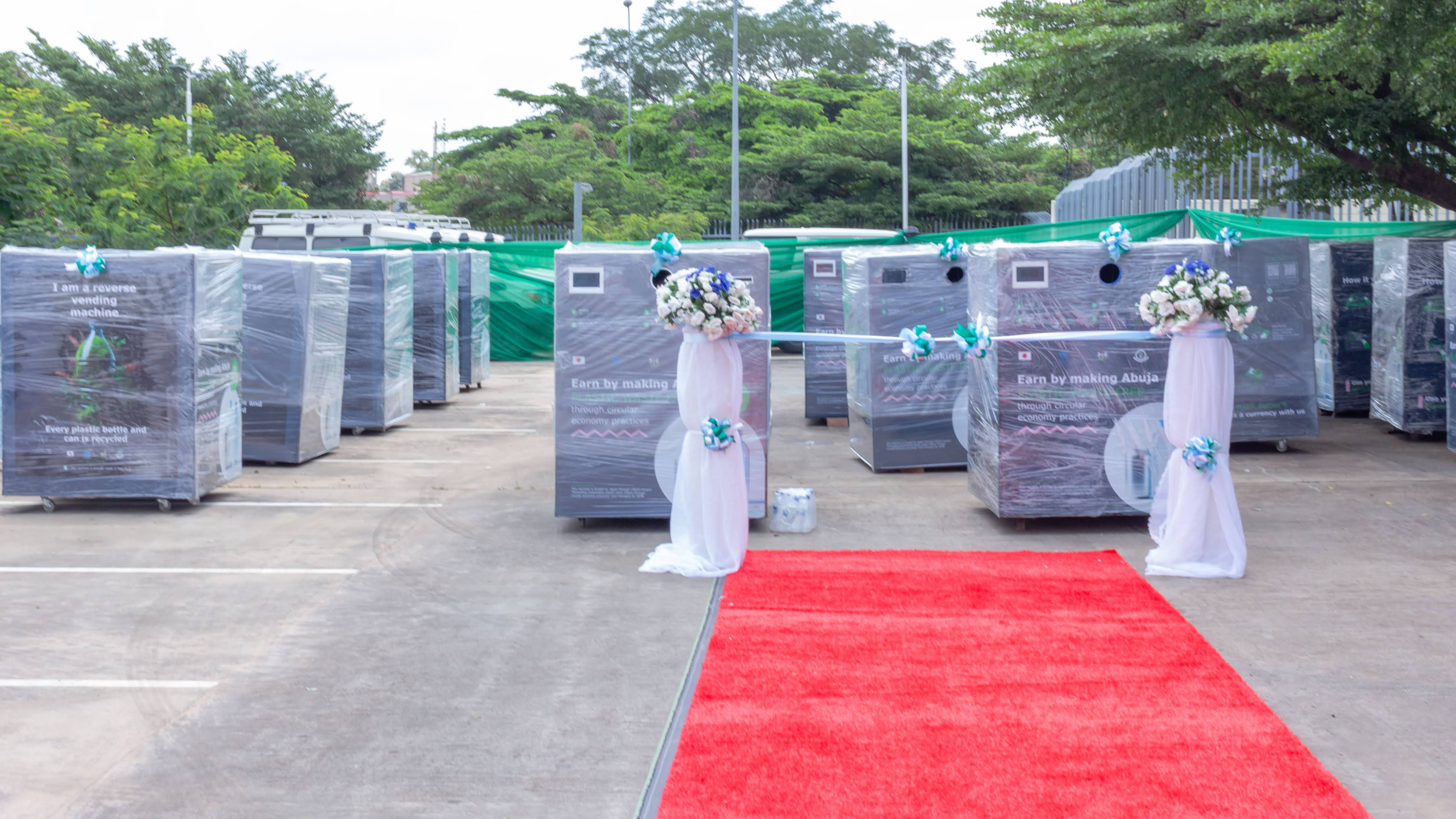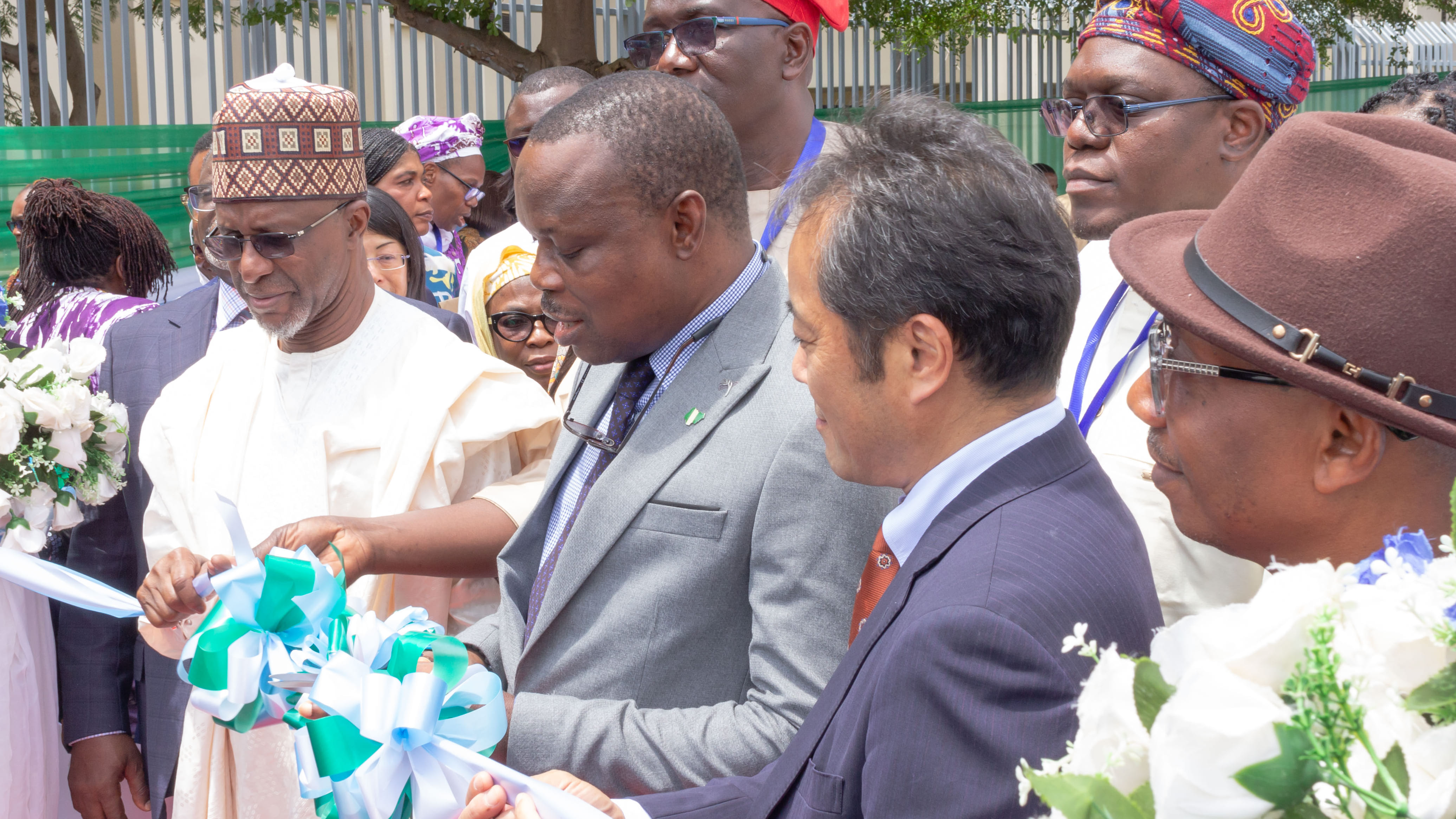

Nigeria automates plastic waste management with locally fabricated Reverse Vending Machines, boosting recycling efforts in the Federal Capital Territory
15 October 2024

Abuja, 10 October 2024 – In a landmark step towards advancing Nigeria’s waste management capabilities, the commissioning of locally fabricated Reverse Vending Machines (RVMs) was celebrated. The RVMs will be installed in 25 key locations within Abuja, Federal Capital Territory (FCT). This initiative was facilitated by the United Nations Industrial Development Organization (UNIDO) in close collaboration with the Abuja Environmental Protection Board (AEPB). It represents a significant milestone in Nigeria's efforts to reduce plastic wastes, improve collection system with digital technology, increase recycling, and support the country's transition to a circular economy with the support from UNIDO’s Project, “Promoting sustainable plastic value chains through circular economy practices" with the funding from the Government of Japan.
The installation of these locally fabricated RVMs marks a significant milestone in Nigeria’s journey towards sustainable waste management and circular economy practices, reinforcing the country’s commitment to environmental protection and economic empowerment. It is expected that 25 RVMs will collect approximately 540 tons of PET bottles per year. It is also expected to serve as a model for future improvement of plastic collection system, hence, increase Nigeria’s plastic waste recovery rates, and reduce the environmental burden of plastic pollution and sustainable industrial development in Nigeria.
The RVMs are produced by Ecobarter (https://ecobarter.africa), a Nigerian woman-owned integrated digital technology waste startup and the forefront of the country’s waste management transformation, Rita Idehai, Founder/CEO of Ecobarter, is also a winner at UNIDO’s Global Cleantech Innovation Programme (GCIP), both at the national and global competition.
The RVMs will empower local communities to take an active role in waste management, also offer an easy and accessible way for residents or consumers to contribute to plastic recycling efforts. Placing the RVMs in high-traffic areas in the city of Abuja will allow citizens to deposit waste plastic bottles and aluminum cans in exchange for incentives, encouraging active public participation in recycling efforts. In addition, the digitally collected data from the pilot will inform future waste management strategies in Abuja and possible expanding across other cities in Nigeria and leading to a nationwide expansion of the RVM programme.
The installation of these locally fabricated RVMs marks a significant milestone in Nigeria’s journey towards sustainable waste management and circular economy practices, reinforcing the country’s commitment to environmental protection and economic empowerment.
In his keynote address, Balarabe Abbas Lawal, Minister of Environment, stated that the commissioning of locally fabricated RVM represented a landmark in the history of waste management and underscores the commitment to supporting local innovation and manufacturing in Nigeria. He commended the unwavering support of UNIDO and the Government of Japan in addressing Nigeria’s numerous environmental challenges.
The Minister of State for Environment, Iziaq Kunle Salako noted the reverse vending machines represents not just a tool, but a symbol of unwavering commitment to a cleaner, greener, and more sustainable future for Nigeria.

In his speech, Hitoshi Kosaki Japanese Deputy Ambassador to Nigeria affirmed their commitment to addressing the pressing issue of waste management in Africa through the Green Growth with Africa Initiative. Noting that this project, funded by the Japanese government and implemented by UNIDO, clearly demonstrates the dedication and shared goal of tackling the problem of plastic waste, in line with their robust international commitment. While expressing his gratitude to UNIDO and all partners, he noted the RVMs innovative system will make it easier for the general public to participate in the plastic waste management process.
Zainab Umar, Director Conservation, Abuja Environmental Protection Board (AEPB) stated the RVMs are a pivotal step taken in the commitment to tackling plastic waste to protect the planet for future generations.
Otu Osuji, UNIDO National Programme Officer stated the RVM marks the beginning of something new in Nigeria and Africa’s environment and industrial sectors while appealing to the State and Federal Government of Nigeria, the private sector and donor agencies to scale up the project.
For further information, please contact:
Nahomi Nishio,
Industrial Development Expert, UNIDO
Email